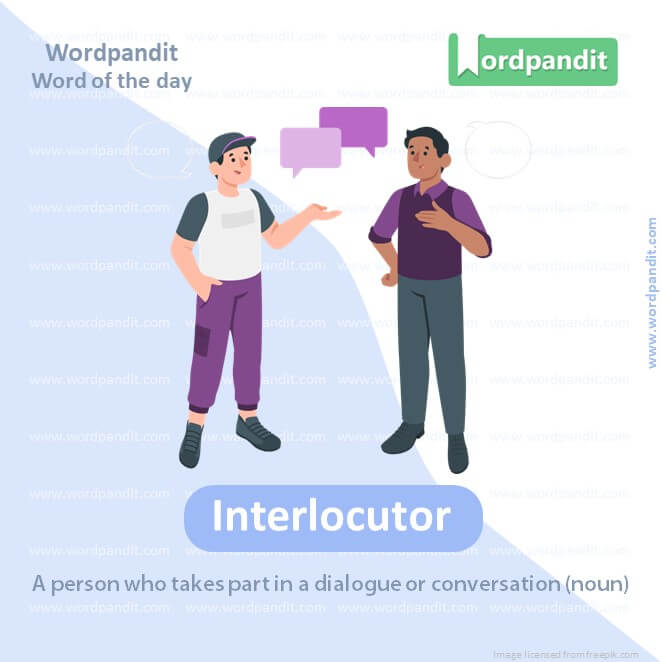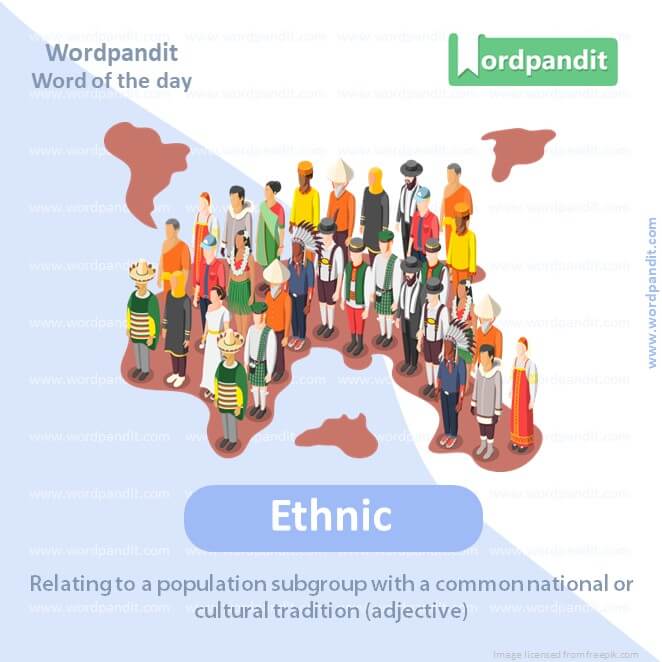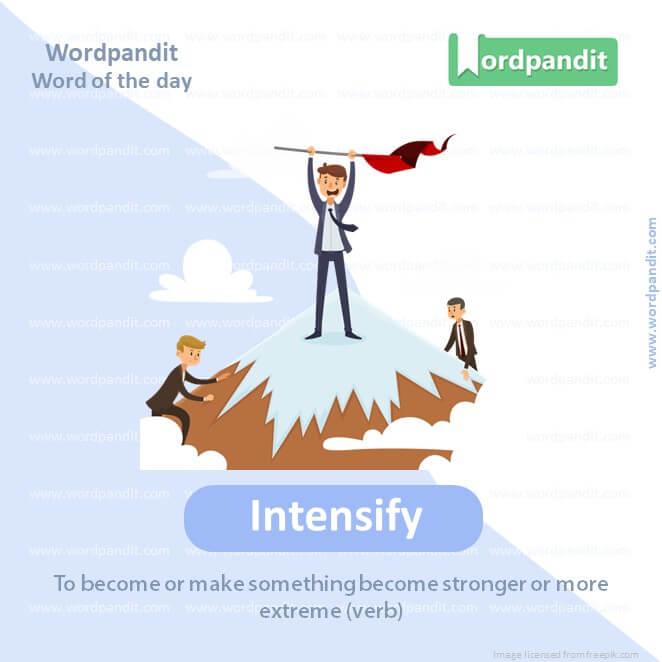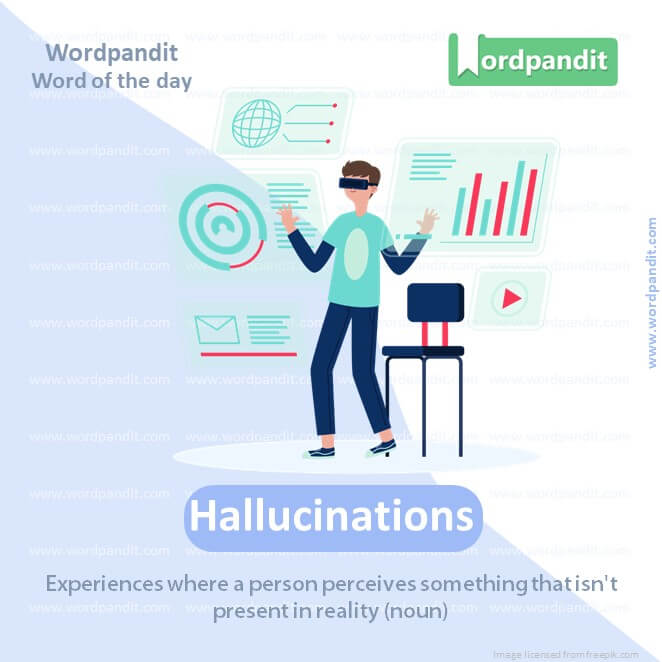Daily Vocabulary Words: List of Daily Used Words in Leading Indian Newspapers
Hi there. Welcome to this special section @ Wordpandit. Our endeavour here is straightforward: highlighting daily vocabulary words that you would come across in leading newspapers in the country. We have included the following newspapers in our selection:
• The Times of India
• The Economic Times
• Hindustan Times
• Mint
• Indian Express
We are putting in extensive work to develop your vocabulary. All you have to do is be regular with this section and check out this post daily. This is your repository of commonly used words; essentially, we are posting a list of daily used words. Hence, this has significant practical application as it teaches you words that are commonly used in leading publications mentioned above.
Visit the website daily to learn words from leading Indian newspapers.

WORD-1: Diplomats
CONTEXT: The report also said “Ottawa was trying to resolve the situation with New Delhi, which had warned that diplomats who stayed beyond the deadline would lose diplomatic immunity, said several people familiar with the situation.
SOURCE: Indian Express
EXPLANATORY PARAGRAPH: Imagine having special friends who help you talk to kids from other neighborhoods, making sure everyone gets along. That’s what “diplomats” do for countries. They help countries talk to each other and be friends.
MEANING: People who represent their country and help with relations with other countries (noun).
PRONUNCIATION: dip-lo-mats
SYNONYMS: ambassadors, envoys, representatives, emissaries, consuls, delegates, legates.
USAGE EXAMPLES:
1. The diplomats met to discuss the new trade deal.
2. She is one of the country’s top diplomats.
3. The diplomats were invited to the royal banquet.
4. The role of diplomats is crucial in maintaining peace.

WORD-2: Interlocutor
CONTEXT: Washington emerged as a key interlocutor between Delhi and Ottawa – Canada is a close US ally and India a strong strategic partner.
SOURCE: Indian Express
EXPLANATORY PARAGRAPH: Think of when you’re playing pretend and you have a puppet that talks to another puppet. The puppet that talks or asks questions is like an “interlocutor.” It’s a fancy word for someone who takes part in a conversation.
MEANING: A person who takes part in a dialogue or conversation (noun).
PRONUNCIATION: in-ter-lok-yoo-tor
SYNONYMS: conversationalist, speaker, talker, questioner, communicator, interviewer, discussant.
USAGE EXAMPLES:
1. He acted as an interlocutor during the debate.
2. The radio host is a skilled interlocutor.
3. The interlocutor kept the conversation lively and engaging.
4. As the interlocutor in the discussion, she made sure everyone had a chance to speak.

WORD-3: Ethnic
CONTEXT: The boys, all belonging to the Meitei ethnic community, and currently undertaking “special classes” to learn English, Hindi and Gujarati apart from “spiritual discourse and lessons in daily discipline”, said they are “happy”.
SOURCE: Indian Express
EXPLANATORY PARAGRAPH: Everyone has a special background, like the stories and traditions from where their family comes from. “Ethnic” is a word that talks about these different backgrounds and the special things that come with them.
MEANING: Relating to a population subgroup with a common national or cultural tradition (adjective).
PRONUNCIATION: eth-nik
SYNONYMS: racial, cultural, traditional, native, tribal, ancestral, indigenous.
USAGE EXAMPLES:
1. The city is known for its rich ethnic diversity.
2. They celebrated the ethnic festival with enthusiasm.
3. The museum had an exhibit on ethnic costumes.
4. There are many ethnic cuisines available in the market.

WORD-4: Intensify
CONTEXT: ”We have spoken to disaster management and health departments and Buxar administration to intensify rescue operations. We have readied Patna hospitals to treat the injured.”
SOURCE: Indian Express
EXPLANATORY PARAGRAPH: Imagine you have a toy car and you push it a little, it goes slowly. But if you push it harder, it goes faster! When something becomes stronger or more extreme, we say it “intensifies.”
MEANING: To become or make something become stronger or more extreme (verb).
PRONUNCIATION: in-ten-si-fy
SYNONYMS: strengthen, amplify, magnify, heighten, escalate, deepen, reinforce.
USAGE EXAMPLES:
1. The storm is expected to intensify by evening.
2. Their efforts to rescue the stranded people intensified.
3. The music intensified as the scene progressed.
4. As the deadline approached, the pressure intensified.

WORD-5: Hallucinations
CONTEXT: First, termination at an advanced stage of pregnancy can still lead to postpartum psychosis, a severe condition where the mother experiences hallucinations and delusions.
SOURCE: Indian Express
EXPLANATORY PARAGRAPH: Imagine seeing a flying unicorn in your room, even when there isn’t one. “Hallucinations” are when people see, hear, or feel things that aren’t really there.
MEANING: Experiences where a person perceives something that isn’t present in reality (noun).
PRONUNCIATION: huh-loo-si-nay-shuns
SYNONYMS: delusions, visions, mirages, phantasms, illusions, apparitions, specters.
USAGE EXAMPLES:
1. The fever caused her to have hallucinations.
2. Some medicines can cause hallucinations as a side effect.
3. He claimed to see hallucinations of ghostly figures.
4. The desert traveler had hallucinations of an oasis.
WORD-6: Delusions
CONTEXT: First, termination at an advanced stage of pregnancy can still lead to postpartum psychosis, a severe condition where the mother experiences hallucinations and delusions.
SOURCE: Indian Express
EXPLANATORY PARAGRAPH: Imagine believing that your teddy bear can talk to you even when it can’t. “Delusions” are strong beliefs that something is true even when it’s not, and even when others try to show you it’s not true.
MEANING: Strong beliefs in something that is clearly not true or based on reality, especially in mental health contexts (noun).
PRONUNCIATION: deh-loo-zhuns
SYNONYMS: misbeliefs, fallacies, misconceptions,
fantasies, deceptions, illusions, misperceptions.
USAGE EXAMPLES:
1. He was under the delusion that he could fly.
2. Her delusions made it difficult for her to understand reality.
3. The patient had delusions of grandeur.
4. It’s a delusion to think you can live without any problems.
WORD-7: Psychosis
CONTEXT: First, termination at an advanced stage of pregnancy can still lead to postpartum psychosis, a severe condition where the mother experiences hallucinations and delusions.
SOURCE: Indian Express
EXPLANATORY PARAGRAPH: Sometimes, people’s minds play tricks on them and they have a hard time knowing what’s real and what’s not. This big word, “psychosis,” means when someone’s brain is making it very hard for them to understand the world properly.
MEANING: A severe mental disorder in which thought and emotions lose contact with reality (noun).
PRONUNCIATION: sy-ko-sis
SYNONYMS: madness, insanity, delirium, derangement, lunacy, mania, mental disorder.
USAGE EXAMPLES:
1. The patient was diagnosed with psychosis after hearing voices.
2. Psychosis can be a side effect of certain medications.
3. He experienced psychosis after prolonged sleep deprivation.
4. Early intervention can help manage symptoms of psychosis.
WORD-8: Foetus
CONTEXT: “We perform this procedure for a foetus which has abnormal development, but generally not done in a normal foetus,” the doctor wrote.
SOURCE: Indian Express
EXPLANATORY PARAGRAPH: Before babies are born, when they’re still growing inside their mommies, they have a special name. We call them a “foetus.” It’s like a tiny baby that’s still getting ready to come out and say hello.
MEANING: An unborn baby, especially from the eighth week after conception to birth (noun).
PRONUNCIATION: fee-tus
SYNONYMS: embryo, unborn child, unborn baby, preborn, baby-in-womb, offspring.
USAGE EXAMPLES:
1. The foetus is well-protected inside the mother’s womb.
2. They saw their foetus for the first time in the ultrasound.
3. It’s important for the mother to eat healthily for the foetus’ development.
4. The doctor checked the foetus’ heartbeat.
WORD-9: Incremental
CONTEXT: With a baseline at that level, China’s contribution to the incremental addition to global GDP of $104 trillion will still be more than India’s at current growth rates.
SOURCE: Times of India
EXPLANATORY PARAGRAPH: Think of when you build with blocks, and you add one block at a time. “Incremental” is a word that means adding little by little, step by step.
MEANING: Relating to or being an increase or addition, especially one of a series (adjective).
PRONUNCIATION: ink-reh-men-tal
SYNONYMS: gradual, progressive, step-by-step, phased, piecemeal, successive, continuous.
USAGE EXAMPLES:
1. The company made incremental changes to the design.
2. They noticed an incremental improvement in his health.
3. The project will be completed in incremental stages.
4. The software receives incremental updates every month.
WORD-10: Antiincumbency
CONTEXT: The interesting question of the Telangana elections is not whether there is considerable anti-incumbency, as antiincumbency has demonstrably shown up in key bypolls over the last two years.
SOURCE: Times of India
EXPLANATORY PARAGRAPH: Imagine if there’s a team captain, but many players want a new one because they’re not happy with the current one. “Antiincumbency” is a big word that means people wanting a change from the current leader or team in charge.
MEANING: A sentiment or desire among the public to vote against the current officeholder or ruling party (noun).
PRONUNCIATION: anti-in-kum-ben-see
SYNONYMS: opposition, dissent, resistance, protest, discontent, disapproval.
USAGE EXAMPLES:
1. The election results were influenced by antiincumbency factors.
2. The ruling party faced strong antiincumbency sentiments.
3. Years of poor governance led to an antiincumbency wave.
4. The opposition tried to capitalize on the antiincumbency mood of the voters.
Vocabulary Words
When delving into the dynamic world of languages, the grandeur of ‘vocabulary words’ is all-encompassing. The importance of ‘vocabulary words’ in effective communication cannot be overstated; it’s these words that form the backdrop of any language, painting intricate pictures of thoughts and ideas.
Starting on the journey of learning ‘vocabulary words’, one should steer clear from rote memorization. The traditional structure of merely repeating words lacks the necessary context and application that actually embeds these words into your memory. To truly master the ‘vocabulary words’, one needs an integrated, immersive approach.
The first step towards mastering ‘vocabulary words’ is to engage with varied language mediums. Expanding beyond textbooks to read fiction, articles, blogs, and other forms of content not only diversifies your vocabulary but also acts as a mirror to reflect the practical application of these words. Essentially, you’re exposed to the words as they are commonly used, allowing you to truly understand their essence.
Empowering this journey, tech tools like language learning apps and memory-enhancing flashcards significantly aid in learning ‘vocabulary words’. These interactive tools provide a more engaging learning experience and hone word retention. Mnemonic devices, associating words with a unique story or visual image, enrich the process and make memory recall more efficient.
Practicing ‘vocabulary words’ by using them in day-to-day conversations exemplifies learning by doing. It also strengthens the neural pathways and improves overall word recall. This, coupled with regular revisions, ensures your grasp over ‘vocabulary words’ remains strong.
In conclusion, learning ‘vocabulary words’ is not just about adding words to your linguistic cupboard, but understanding their essence and utilizing them effectively. An inclusive approach to learning that combines diverse reading materials, technology tools, mnemonic devices and practice can really propel your mastery over ‘vocabulary words’. Remember, language is the bloodline of communication, and ‘vocabulary words’ are its heartbeat. ‘







